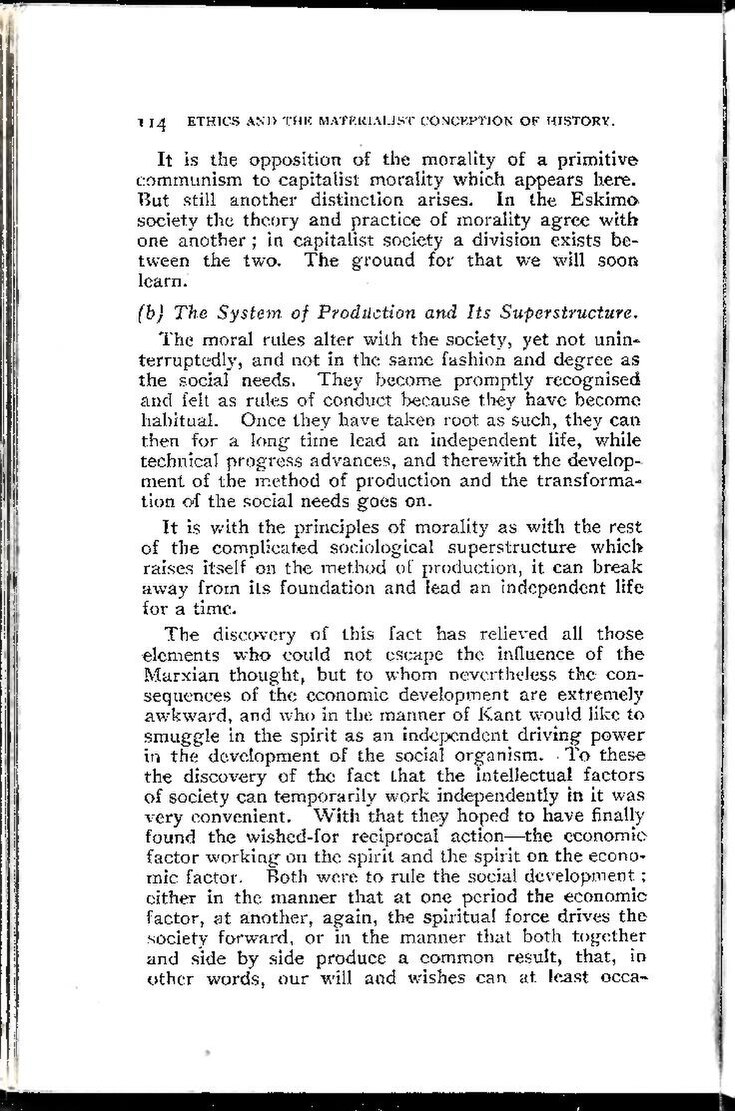It is the opposition of the morality of a primitive communism to capitalist morality which appears here. But still another distinction arises. In the Eskimo society the theory and practice of morality agree with one another; in capitalist society a division exists between the two. The ground for that we will soon learn.
(b) The System of Production and Its Superstructure.
The moral rules alter with the society, yet not uninterruptedly, and not in the same fashion and degree as the social needs. They become promptly recognised and felt as rules of conduct because they have become habitual. Once they have taken root as such, they can then for a long time lead an independent life, while technical progress advances, and therewith the development of the method of production and the transformation of the social needs goes on.
It is with the principles of morality as with the rest of the complicated sociological superstructure which raises itself on the method of production, it can break away from its foundation and lead an independent life for a time.
The discovery of this fact has relieved all those elements who could not escape the influence of the Marxian thought, but to whom nevertheless the consequences of the economic development are extremely awkward, and who in the manner of Kant would like to smuggle in the spirit as an independent driving power in the development of the social organism. To these the discovery of the fact that the intellectual factors of society can temporarily work independently in it was very convenient. With that they hoped to have finally found the wished-for reciprocal action—the economic factor working on the spirit and the spirit on the economic factor. Both were to rule the social development; either in the manner that at one period the economic factor, at another, again, the spiritual force drives the society forward, or in the manner that both together and side by side produce a common result, that, in other words, our will and wishes can at least occa-
